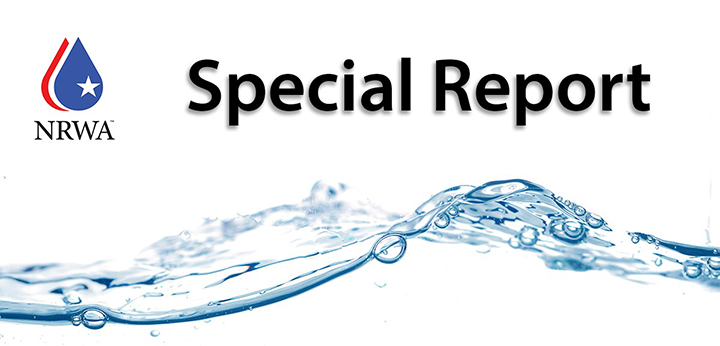
August 4, 2020
Congressmen David Rouzer of North Carolina (NC-07) and Filemón Vela Jr. of Texas (TX-34) introduced the Emergency Assistance for Rural Water Systems Act today.
The Emergency Assistance for Rural Water Systems Act allows USDA Rural Development to provide affordable and sustainable financial options for rural utilities impacted by COVID-19. Assistance includes grants, zero percent loans, one percent loans, principal and interest reduction, loan modifications and direct operational assistance to provide financial stability for the impacted utility to get through this crisis.
NRWA strongly supports these tools for Rural Development to employ in this crisis. NRWA’s 30,000 member utilities need these tools and resources to directly address the financial concerns and continuity of operations challenges that the rural utilities are currently experiencing, especially as they continue to provide uninterrupted essential services now and in future disasters or economic downturns.
“Access to clean drinking water and safe wastewater treatment is vital every American, especially during the COVID-19 pandemic,” stated Kent Watson, NRWA President and Texas National Director. “Serving as a manager of a rural utility for 30 years, I understand the necessity of the Emergency Assistance for Rural Utilities Act. This Act will provide assistance that is direly needed by many utilities in our Nation that are suffering the financial effects of the pandemic, and will ensure future sustainability for these systems during times of crisis.”
This legislation comes at a time that is desperately needed for Rural America and Rural Water. Small and rural communities have done their part to meet the public’s needs during the COVID-19 pandemic by maintaining and restoring customer access to water services regardless of payment. NRWA estimates small water and wastewater systems stand to lose $998 million in revenue due to customer nonpayment alone. This lost revenue will never be recovered by utilities and does not include emergency operational costs.
Most of the country’s drinking water and wastewater utilities are small. Roughly 80 percent of the country’s approximately 17,000 wastewater utilities serve populations less than 10,000 persons. Over 90 percent of the country’s approximately 50,000 community water systems serve a populations less than 10,000 persons.
“I’m proud to introduce this much-needed legislation to address our rural water infrastructure. Our rural communities have been struggling for years to maintain and update critical water infrastructure, a problem that has been made that much worse by revenue shortfalls due to the pandemic. This legislation will provide critical resources to better ensure we have the sound water infrastructure necessary to providing basic services for rural families.” Congressman David Rouzer.
“I am proud to introduce bipartisan legislation that would provide much needed assistance to rural water and waste disposal systems affected by the novel coronavirus pandemic. This health crisis has showcased the important role safe drinking water and sanitary waste disposal play not only in public health, but also in the economic vitality of rural America. As we continue to fight this pandemic, we must ensure that our nation’s rural water and waste disposal systems have the resources and infrastructure needed to support families living in rural communities.” Congressman Filemon Vela.
Rural America and State Rural Water Associations are proud of the commitment made by Congressmen Rouzer and Vela.
“Congressman David Rouzer (NC-7) has been a long-standing supporter of rural water utilities as far back as his days working at the USDA Rural Development and later the NC General Assembly. His determination to assist rural North Carolina and water and wastewater systems has never wavered and has once again been exhibited by his Emergency Assistance for Rural Water Systems Act. As a resident of Congressman Rouzer’s district, I could not be more proud of his attentiveness to the needs of his district and the priorities of rural and eastern North Carolina,” said Daniel Wilson, Executive Director of North Carolina Rural Water Association.
Brian Macmanus, Texas Rural Water Association’s Immediate Past President, acknowledges Congressman Vela’s vision. “Congressman Vela has always listened to the needs of his rural water constituents in District 34, and is aware of our systems’ financial needs. On two occasions he has visited our local surface water treatment facilities. Here in Deep South Texas and across our entire state and country, we are very pleased with the potential relief this bill provides to our water and wastewater systems in Rural America.”
